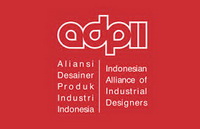Perancangan produk furnitur co-working space dengan konsep open space
Abstract
Coworking Space is a place where individuals or groups have different work backgrounds in one place. In Indonesia, coworking spaces are developing, with proof of that is the emergence of coworking spaces in big cities, such as Jakarta, Bandung, Surabaya, and Yogyakarta. With the increasing demand, coworking spaces are currently experiencing development. One element that is quite close and plays an important role in work activities is a table and chairs. Various activities and various work backgrounds that gather in a limited space and spend quite a long time, demand a coworking space to be a versatile and comfortable place. Thus, we need furniture that can achieve effectiveness and still think about the concept of open space or sharing space with other users. This means that this furniture has more features, such as being able to be used individually or together. So that the designed tables and chairs can accommodate user needs and adjust the space that is expected to create comfort for working in a coworking space.
Keywords
Full Text:
PDFReferences
Aritonang, Liesbeth. (2020). Penerapan Gaya Desain Coastal pada Sebuah Co-working space Berlantai Dua di Kota Medan. Jurnal Sains dan Teknologi. 14(1). https://doi.org/10.59637/jsti.v14i1.11
Bianchi, F., Casnici, N., & Squazzoni, F. (2018). Solidarity as a by-product of professional collaboration: social support and trust in a co-working space. Social Networks, 54, 61–72. https://doi.org/10.1016/j.socnet.2017.12.002
Bouncken, R. B., Aslam, M. M., & Qiu, Y. (2021). Co-working spaces: Understanding, using, and managing sociomateriality. Business Horizons, 64(1), 119–130. https://doi.org/10.1016/j.bushor.2020.09.010
Bueno, S., Rodríguez-Baltanás, G., & Gallego, M. D. (2018). Co-working spaces: A new way of achieving productivity. Journal of Facilities Management, 16(4), 452–466. https://doi.org/10.1108/JFM-01-2018-0006
Calister., William D. (2004). Material Science and Engineering. New York: John Willey.
El-Zeiny, R. M. A. (2012). The interior design of workplace and its impact on employees’ performance: A case study of the private sector corporations in Egypt. Procedia-Social and Behavioral Sciences, 35, 746-756. https://doi.org/10.1016/j.sbspro.2012.02.145
Errett, J., Bowden, E. E., Choiniere, M., & Wang, L. M. (2006). Effects of noise on productivity: does performance decrease over time?. In Building Integration Solutions (pp. 1-8). https://doi.org/10.1061/40798(190)18
Gerdenitsch, C., Scheel, T. E., Andorfer, J., & Korunka, C. (2016). Co-working spaces: A source of social support for independent professionals. Frontiers in Psychology, 7, 581. https://doi.org/10.3389/fpsyg.2016.00581
Gie, The Liang. (1983). Administrasi Perkantoran Modern. Yogyakarta: Liberty.
Jayadi, N., & Prasetya, R. D. (2017). Pengembangan desain produk berbahan baku limbah kerang di Bantul. Productum: Jurnal Desain Produk (Pengetahuan dan Perancangan Produk), 3(1), 35-41. https://doi.org/10.24821/productum.v3i1.1736
Jayadi, N., & Prasetya, R. D. (2018). Penguatan eksistensi kota kreatif melalui inovasi desain kamuflase menara BTS berbasis zonasi wilayah. Productum: Jurnal Desain Produk (Pengetahuan dan Perancangan Produk), 3(3), 101-106. https://doi.org/10.24821/productum.v3i3.1923
Jayani, Dwi Hadya. (2021). Jumlah Pekerja Informal pada Februari 2021. Retrieved from https://databoks.katadata.co.id/datapublish/2021/05/07/berapa- jumlah-pekerja-informal-pada-februari-2021.
Kralikova, R., Piňosová, M., & Hricová, B. (2016). Lighting quality and its effects on productivity and human healts International Journal of Interdisciplinarity in Theory and Practice, 10, 8-12.
Kwallek, N., Soon, K., & Lewis, C. M. (2007). Work week productivity, visual complexity, and individual environmental sensitivity in three offices of different color interiors. Color Research & Application. 32(2), 130-143. https://doi.org/10.1002/col.20298
Leforestier, A. (2009). The co-working space concept. Ahmedabad: CINE Term Project.
Lescarret, C., Lemercier, C., & Le Floch, V. (2022). Co-working spaces, a viable alternative to home as a place to telework? First elements from an exploratory interview survey. Psychologie Du Travail et Des Organisations, 28(3), 167–181. https://doi.org/10.1016/j.pto.2022.06.001
Mak, C. M., & Lui, Y. P. (2012). The effect of sound on office productivity. Building Services Engineering Research and Technology, 33(3), 339-345. https://doi.org/10.1177/0143624411412253
Pramiyati, Titin. (2017). Peran Data Primer pada Pembetukan Skema Konseptual Yang Faktual (Studi Kasus: Skema Konseptual Berbasis data Simbumil). Jurnal SIMETRIS, 8(2). 2252-4983. https://doi.org/10.24176/simet.v8i2.1574
Prasetya, R. D. (2007). Pengaruh komposisi warna pada ruang kerja terhadap stres kerja. LINTAS RUANG: Jurnal Pengetahuan dan Perancangan Desain Interior, 1(1). 7-16 https://doi.org/10.24821/lintas.v1i1.13
Prasetya, R.D. (2014). Effect of Color Composition in Work Space Against Job Performance. International Journal of Creative and Arts Studies. 1(1) 70-79. https://doi.org/10.24821/ijcas.v1i1.1573
Prasetya, R.D. (2019). Preferensi Masyarakat Jawa Terhadap Aspek-Aspek Interior Ruang Rawat Inap Rumah Sakit. Project Report. Lembaga Penelitian Institut Seni Indonesia Yogyakarta, Yogyakarta. Retrieved from http://digilib.isi.ac.id/2892/
Seo, J., Lysiankova, L., Ock, Y.-S., & Chun, D. (2017). Priorities of co-working space operation based on comparison of the hosts and users’ perspectives. Sustainability, 9(8), 1494. https://doi.org/10.3390/su9081494
Sunyoto, Danang. (2012). Manajemen Sumber Daya Manusia. Cetakan Pertama. Jakarta: Penerbit PT Caps
Wright, A., Marsh, D., & Wibberley, G. (2022). Favours within “the tribe”: Social support in co-working spaces. New Technology, Work and Employment, 37(1), 59–78. https://doi.org/10.1111/ntwe.12214
DOI: https://doi.org/10.24821/productum.v6i2.9149
Refbacks
- There are currently no refbacks.
p-ISSN 2477-7900 | e-ISSN 2579-7328

This work is licensed under a Creative Commons Attribution 4.0 International License.
Like & Follow Us











